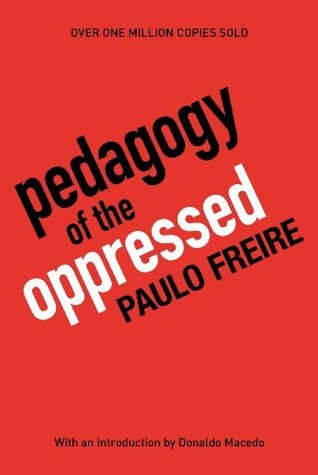Paolo Freire’s seminal work, “Pedagogy of the Oppressed,” stands as a foundational text in the field of education, philosophy, and critical theory. Originally published in 1968, its influence continues to reverberate across disciplines, inspiring educators and activists alike with its radical critique of traditional pedagogical methods and its impassioned call for liberation through education.
At its core, Freire’s book is a passionate manifesto against what he terms the “banking concept” of education, where knowledge is treated as a static deposit that teachers make into the passive minds of students. Instead, he proposes a liberatory pedagogy where education becomes a mutual process of dialogue and co-creation between teachers and learners. Freire argues that this dialogical approach is essential for fostering critical consciousness (or “conscientização”) among the oppressed, enabling them to perceive their social reality, recognize oppression, and work towards liberation.
The book is structured around Freire’s dialectical theory of education, which posits that true education should empower individuals to critically analyze and transform their social context. Central to this theory is the idea of praxis—a cycle of reflection and action through which individuals can become agents of change in their own lives and communities. Freire’s insistence on the role of education in fostering humanization and solidarity is both radical and profoundly optimistic, challenging entrenched power structures and envisioning a world where education serves as a tool for social justice.
“Pedagogy of the Oppressed” is not merely a theoretical treatise but a deeply political and ethical call to action. Freire draws extensively on his experiences working with impoverished communities in Brazil, illustrating how education can be a catalyst for political awakening and collective empowerment. His critique of traditional education systems as inherently oppressive resonates with anyone concerned with issues of social inequality and injustice.
Critics of Freire’s work have raised concerns about the practical application of his ideas, particularly in complex educational settings. Some argue that his emphasis on dialogue and conscientization may not easily translate into concrete teaching practices. Nevertheless, Freire’s enduring legacy lies in his ability to inspire generations of educators and activists to rethink the purpose and practice of education, challenging them to create learning environments that prioritize dialogue, critical thinking, and social transformation.
Overall, “Pedagogy of the Oppressed” remains essential reading for anyone interested in the intersections of education, social justice, and liberation. Freire’s passionate advocacy for a pedagogy of hope and empowerment continues to resonate with contemporary movements for educational reform and social change. By urging us to see education as a tool for liberation rather than domination, Freire’s work continues to inspire and provoke, making it a timeless and indispensable contribution to the literature on education and human liberation.

